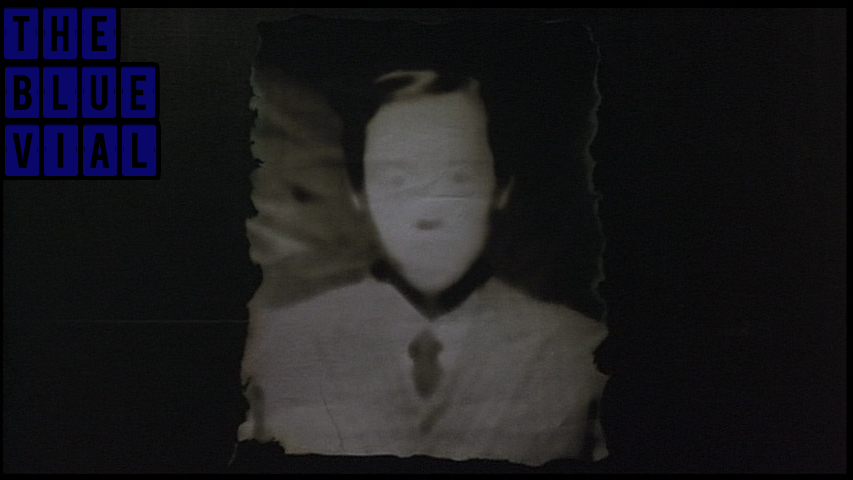Sleepwalk is the first feature film from Sara Driver AKA Mrs. Jim Jarmusch. Released in 1986 and clocking in at a mere 76 minutes, this quietly mystical fantasy is set in the Chinatown area of New York. Secret manuscripts, shady gangsters, possessed offices, ancient curses, kidnapping, murder and Steve Buscemi, everything but the kitchen sink is present in Sleepwalk, yet the film never feels overstuffed. On the contrary, it is a leisurely paced tale that makes great use of its atmospheric locales and quirky cast to deliver the type of enthralling natural storytelling that makes one seriously wonder why Mrs. Driver never gained anything close to an ounce of her husband's indie-god renown.
Following a voice over intro explaining in puzzling detail something about The Year of the Dog, we are introduced to Nicole (Suzanne Fletcher) who works in a typing/printing store, putting in long hours in front of a computer and pecking away at her keyboard day after day while her young son Jimmy sits at home under the care of Nicole's money-hungry roommate of questionable immigration status, Isabelle (Ann Magnuson). One particular day two men come into her store. They are Dr. Gou (Stephen Chen) and Barrington (Tony Todd, of Candyman fame). Being aware of Nicole's fluid Chinese, the two hire her to translate an ancient manuscript they have come into possession of through less than honest means. The manuscript, which stinks of almonds, must never leave her sight the pair warns her, and she has three days to complete the translation for an unspecified yet promising amount of money. Nicole begins to translate the writings, and what at first appear to be innocent fairy tales and legends quickly become portends to ominous events that will soon bleed into Nicole's everyday life.
All of this could have easily added up to Sleepwalk being nothing more than a hokey B movie filled with bad effects, a cardboard plot and stock dialogue, but Driver has something quite different in mind. As I said earlier, she is a natural storyteller with an excellent sense of pacing and a keen surrealist touch, and the events themselves happening in the film are not of extreme importance to her. Rather, Driver is interested in small, moody moments and the face of her lead actress, which is often working under muted emotions and detached dialogue in the wake of all the craziness around her. It is an enigmatic and effective performance from Fletcher and is the anchor for the air of dreamlike ambiance that often permeates through the film.
The streets of Chinatown are almost ghostly in Sleepwalk, and they provide a wonderfully mysterious atmosphere. They are often shown as desolate stretches of pavement filmed almost exclusively during the night where children and other peripheral characters wander around aimlessly like lost souls without a home. A small boy asks Nicole to help him cross the street, only to run right back to the other side again. A young girl tosses confetti into the air in a magical little moment. A businessman stops, turns towards Nicole and barks savagely for no apparent reason, which if nothing else reminds us that it is indeed The Year of the Dog, and strange things are happening. Sleepwalk is sprinkled with little moments like these that only add to the ethereal textures of the film.
At some point the plot itself becomes secondary while the movie focuses on following Nicole (and to a lesser degree, her son and Isabelle) and her journey. The best sequence of the film comes during an elevator ride Nicole takes from her seventh floor apartment down to the ground floor. The elevator begins mysteriously stopping all by itself upon every descending floor, opening its doors to reveal things increasingly sinister and surreal to the bewilderment its sole occupant. The scene bathes Nicole in the elevators shadows, allowing just enough light for her wide white terror filled eyes to pierce through the screen. All of this leads up to a pitch perfect cliffhanger (or maybe it's not) ending that gives the film a circular quality and leaves us with a unique brand of poetic resonance that only filmmakers of a high caliber are able to deliver. Driver's only other feature film was something from 1993 called "When Pigs Fly". I will definitely be searching that out, and in the meantime let's hope that she decides at some point in the future to try her hand at directing once more. After all, most directors should be so lucky to have a movie as special as Sleepwalk under their belts.














